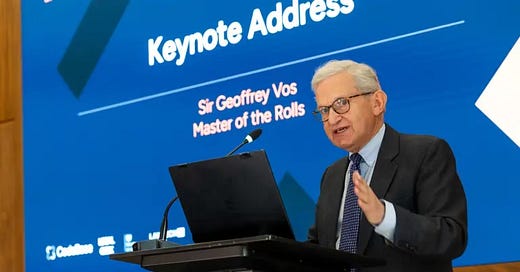Lawyers and judges must embrace generative artificial intelligence, the head of civil justice for England and Wales said yesterday.
Speaking at the LawtechUK Generative AI Event, the master of the rolls Sir Geoffrey Vos gave three reasons:
Those we serve are using it: all other industrial, financial and consumer sectors will be using AI at every level.
Wi…
Keep reading with a 7-day free trial
Subscribe to A Lawyer Writes to keep reading this post and get 7 days of free access to the full post archives.




